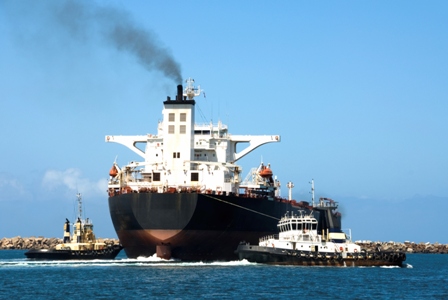Trident Alliance, the shipping industry initiative for robust enforcement of maritime sulphur regulations, is well on track for launch after its exploratory meeting in Copenhagen on 28 May, 2014.
At the meeting, hosted by Maersk Maritime Technology and Wallenius Wilhelmsen Logistics (WWL) in Copenhagen, representatives from a dozen shipping companies, including some of the world’s largest, negotiated the basis for the new Trident Alliance.
 The companies agreed that the Trident Alliance will be a coalition of shipping owners and operators who share a common interest in robust enforcement of maritime sulphur regulation and are willing to collaborate to help bring it about. The Alliance will partner with other groups who share its interest in robust enforcement, collaborating on initiatives that support this objective.
The companies agreed that the Trident Alliance will be a coalition of shipping owners and operators who share a common interest in robust enforcement of maritime sulphur regulation and are willing to collaborate to help bring it about. The Alliance will partner with other groups who share its interest in robust enforcement, collaborating on initiatives that support this objective.
The company representatives agreed to the Trident Alliance Principles and Terms of Reference and to work towards the vision of a shipping industry with effective enforcement of sulphur regulations to ensure their intended effect is reached and eliminate the risk of distortion to the competitive landscape.
"The meeting in Copenhagen was highly constructive and we all agree that the Trident Alliance is the right way to handle this challenge,” said Roger Strevens, VP Environment of WWL. “The public support and attention we received really added urgency and focussed the discussion. None of us want to see this evolve into a coffee club; this is an initiative that will get the work done.”
Over the past years, significant steps have been taken to implement regulations to limit sulphur emissions from shipping. Whilst necessary, these regulations pose a significant cost and compliance challenge to the shipping industry. If the regulations are robustly implemented then compliance is the norm and competition is not distorted. However, when enforcement is weak a temptation is created to cut corners on compliance. The result is that regulations will not have the intended effect of protecting the environment and human health. Also, responsible shipping companies are put at a disadvantage relative to those who are intentionally non‐compliant.
Image: Regulations to limit sulphur emissions pose a significant cost and compliance challenge to the shipping industry.